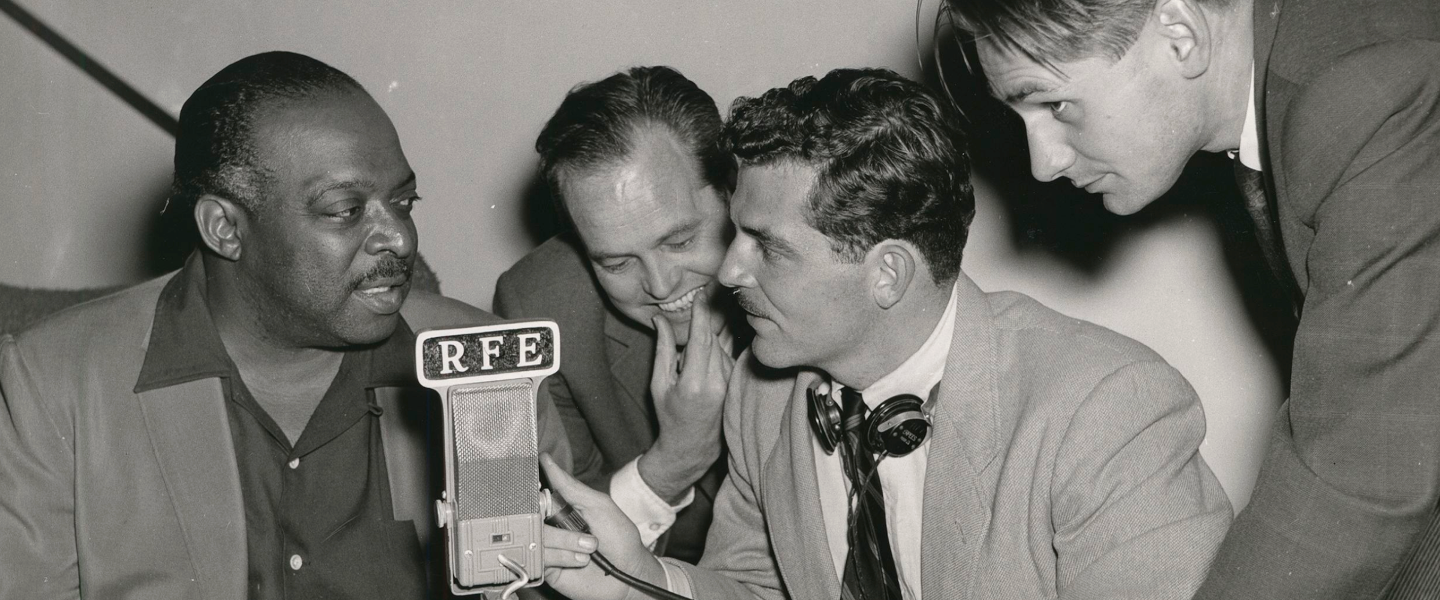published: 26 March 2025

Memorial's statement in support of Radio Free Europe and Voice of America
On March 14, President Trump issued an executive order to cut funding for the US Agency for Global Media (USAGM), which curates news broadcasts in almost 50 languages for more than 350 million people weekly. This put Radio Free Europe/Radio Liberty and Voice of America under threat of liquidation.
The legality of this order, which shows the executive branch of the government overriding the legislative branch, is to be assessed by American courts. The feasibility and appropriateness of the order (put forward with no prior discussion with lawmakers, no assessment of consequences and no plans to fill the information vacuum that is to follow, only based on vague, unsubstantiated claims about “obscene over-spending”) is to be later assessed by voters.
However, this assessment is already clear for millions of people living in freedomless countries. Two of the most important sources of independent information, the reputation of which has been built over decades, are set to disappear. There is nothing that can take their place, and the Trump administration makes no suggestion that they plan to work on upholding freedom of speech in places where it is truly jeopardized.
This decision doesn’t only put citizens of countries that practice censorship, manipulation and intentional misrepresentation in danger. It is no less dangerous for the USA. As RFE/RL president and CEO, Stephen Capus, said, the decision would be a “massive gift to America’s enemies.” Millions of people in closed communities will lose access to truthful information. This can make undemocratic regimes more dangerous, weaken the opposition against dictatorship, against the dismantling of democratic values and human rights. Voice of America director Michael Abramowitz emphasized that this decision would weaken the US’s ability to fight disinformation.
We know and remember very well the history of communist regimes that spent exorbitant amounts of money to silence Western radio stations. However, now we are not invoking sentimental memories of the huge impact these media had during the Cold War. We are talking about the present and the future. This is a time when the experience of responsible, quality work in the information sphere can become more important than ever before.
The RFE/RL media corporation has represented the interests of the entire free world in the broadest sense of the term since the early 1950s. These are the interests of people, societies and states that do not fear truth and dialogue, stand against the ideologization of history and for the study and comprehension of the totalitarian past, and fight against human rights abuses in the present.
Informational monopoly is every dictator’s dream. It is no coincidence that these media corporations were banned or designated “undesirable” by every authoritarian regime. This ban is the unequivocal recognition of the influence and effectiveness of Radio Free Europe/Radio Liberty and Voice of America.
The role of sources of truthful, independent and professional information play is as important today as it was forty years ago.
Any reasonable person understands that. European Commission spokeswoman Paula Pinho put it very clearly: “We see these media outlets really as beacons of truth, of democracy, and of hope for millions of people around the world. And, of course, in an era of unmoderated content and fake news, journalism and freedom of the press are crucial for democracy. And this decision risks playing into the hands of our common enemies.”
Dafydd ab Iago, president of API-IPA, said, “The loss of RFE/RL… undermines the collective effort to uphold democratic values and counter oppressive regimes.”
The decisions are being explained by “obscene over-spending”. However, if the organizations that work to verify and competently interpret information are liquidated, the price may be immeasurably higher.
We call on every democratic country to find a way to support radio stations that protect their common values.
We hope that the work of Radio Free Europe/Radio Liberty and Voice of America continues.
